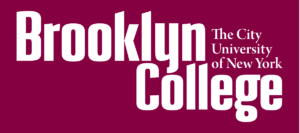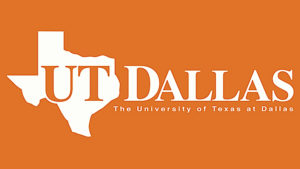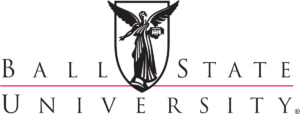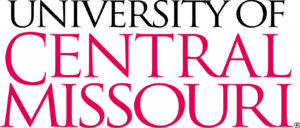
Working adults, low-income students, and many other college students tend to find themselves paying their way, so an affordable actuarial science bachelor’s program can be key to getting ahead. There are several ways to save money on an actuarial science degree.
You can start by looking for cheap universities to study actuarial science and enroll in the degree program you are interested in. You may be able to find a cheaper option if you choose to enroll in an online program. Online programs sometimes cost less than traditional classroom programs simply because there is less overhead. There is no travel time from your home to the school and the school does not have to pay to keep the lights on or the building heated or cooled.
Saving money on an actuarial science degree can also be accomplished by applying for grants and scholarships. Many universities offer scholarships to students who meet their eligibility requirements. Other students may be able to get the funds they need by filling out and submitting grant paperwork. By earning a grant, the student may be able to continue on with their education until they receive the highest degree possible. This will make it much easier for them to continue to move forward with their career as time goes on.
Methodology: Ranking the Most Affordable Actuarial Science Bachelor’s Degrees
The programs in the Bachelor’s Degree Center ranking of the most affordable actuarial science degrees are presented according to their tuition cost, using current IPEDS numbers. Only accredited, reputable colleges were considered by the editors.
1. CUNY Brooklyn College

CUNY Brooklyn College has an affordable actuarial science bachelor’s degree. The program aims to develop students into deductive mathematicians. Learners master computational skills and an appreciation of abstract reasoning that is the foundation of mathematics. Students solve real-world problems using advanced mathematical skills. Additionally, students gain experience with software and technology used by actuarial mathematicians. This program promotes analytical and critical thinking and helps students prepare for graduate studies or entry-level positions. Graduates go on to teach pre-college mathematics and earn a BS in actuarial mathematics.
CUNY Brooklyn College is located in Brooklyn, New York. This large institution has over 11,000 undergraduate students and a competitive acceptance rate of 45%. Those who are lucky enough to receive an acceptance letter choose from numerous majors, the most popular of which include business and accounting.
What We Like: This prestigious university has an acceptance rate of 45% and 83% of students receive financial aid. Financial aid makes college for affordable for returning adult students and those just out of high school.
Degree: Actuarial Mathematics, BS
2. Appalachian State University

The affordable actuarial science bachelor’s degree at Appalachian State University focuses on risk management and confers a BS in actuarial science for graduates of this program. Students learn to use mathematics too predict future events and design risk management programs. This degree builds a foundation in statistics, advanced mathematics and economics. Students also learn the ins and outs of finance. Courses focus on preparing students for the first three exams to become an actuary. These include the probability exam, the financial mathematics exam and the models for life contingencies exam.
What We Like: Appalachian State University ranks number three among north Carolina’s top universities, making this a competitive program for those searching for the right college for them.
Degree: Actuarial Science, BS
3. The University of Texas at Dallas

For math-loving students looking for an affordable actuarial science bachelors degree, the University of Texas at Dallas is a great candidate. The university has a Bachelor of Science in actuarial science that falls under its department of mathematics. Learners receive a deep background in mathematics and statistics that prepares them for future careers in insurance, finance and health fields, among others. Additionally, there are a number of courses devoted to finance, economics, computer science, information technology and other fields related to actuarial science.
The University of Texas at Dallas is located in the Dallas-Fort Worth area. This large institution has 18,000 undergraduate students and nearly four out of five students who apply gain admission to the university. The school also has a high graduation rate of 70%. Its most popular majors include biology, information science and accounting.
What We Like: The school has a number four ranking among the top public universities in the state.
Degree: Actuary Science, BS
University of Texas at Dallas
4. The University of Texas at San Antonio

The University of Texas at San Antonio also has an affordable actuarial science bachelor’s degree. This interdisciplinary program includes an emphasis on both quantitative methods and computing. Students learn to analyze, visualize and interpret data commonly used in actuarial sciences. This program provides a rational basis for students seeking careers in decision analysis. Graduates emerge ready to perform a number of business functions including marketing, operations, human resources, supply chain management and logistics. Graduates go on to find jobs in insurance, biomedical industry, government agencies and hi-tech fields.
UT San Antonio has fewer than 1,000 undergraduate students. However, it offers several majors including nursing, emergency medical technician and dental hygiene. UT-San Antonio focuses on health majors and preparing students to work in health-related careers.
What We Like: Approximately 83% of students feel that professors put a lot of energy into their classes, and 100% of students surveyed say that is easy to get the classes they need.
Degree: Actuary Science, BBA
University of Texas at San Antonio
5. University of Michigan — Flint

The affordable actuarial science bachelor’s degree at The University of Michigan – Flint is dedicated to providing a strong foundation in actuarial science. It helps students gain the knowledge they need to pursue entry-level careers in actuarial sciences. This career requires strong mathematical skills and a deep knowledge and understanding of business-related areas. Actuaries go to work for financial planning agencies, insurance companies, and government agencies, among other employers who value candidates with a strong mathematical background.
UM Flint is a highly respected university open to the public and located in Flint, Michigan. With fewer than 4,000 undergraduate students, it is considered a small institution and has an acceptance rate of 66%. Popular majors include nursing, psychology and business.
What We Like: UM Flint is ranked number eleven among Michigan’s top public universities, making in a strong candidate for students looking for a reputable school to complete their degrees.
Degree: Actuarial Mathematics, BS
University of Michigan – Flint
6. Brigham Young University

Brigham Young University has an affordable actuarial science bachelor’s degree. Before they can declare an actuarial science major, students must pass an exam offered by the Society of Actuaries (SOA). Most students choose the exam FM to meet this requirement. The principles of statistics, statistical theory, calculus, programming, variance analysis, probability, regression, and inference are just some of the courses that give students a well-rounded mathematical background. Some students go on to apply for graduate studies in actuarial science or related fields.
This highly rated private university is located in Provo, Utah. This large institution has over 20,000 undergraduate students and a competitive admissions process that admits 67% of applicants. Those who do become accepted study nature such as exercise physiology, accounting and psychology. The university has an excellent graduation rate of 78%.
What We Like: Brigham Young University at Provo is the top college in Utah.
Degree: Actuarial Science, BS
7. Arizona State University

Arizona State University has an affordable actuarial science bachelor’s degree. Students learn risk management and other actuarial subjects that help them evaluate future events using numbers. Graduates learn to design creative ways to decrease the likelihood of undesirable outcomes. Actuarial professionals also work to reduce the outcome of undesirable consequences.
Actuaries provide an important function for financial institutions and security programs. these certified professionals go through a series of examinations in order to achieve their designations.
The school has an A‑plus rating in fields such as diversity, academics and best value for money. Students speak highly of professors and say they are able to obtain the classes they need to complete their programs on time.
What We Like: Arizona State University at Tempe is ranked the #1 best college in America.
Degree: Actuarial Science, BS
8. Oakland University

Oakland University has an affordable actuarial science bachelor’s degree that teaches students what they need to know to master financial security programs. Graduates emerge to find jobs where they act as the brain trust behind financial safeguards. Actuaries study the likelihood of certain catastrophes and suggest ways that financial institutions can safeguard themselves against them.
Oakland University is located in Auburn Hills near Detroit. This large institution has more than 12,000 undergraduate enrollees and offers dozens of majors to help students achieve their career objectives. Candidates have a good chance of acceptance, with 83% of those who apply getting an acceptance letter. Some majors available include health professions and related fields such as psychology and nursing.
What We Like: About 94% of students receive some sort of financial aid, making an education at Oakland University highly accessible.
Degree: Actuarial Science, BS
9. Ball State University

Ball State University has an affordable actuarial science bachelor’s degree. Risk management requires a unique skill set and this program prepares learners to master skills and mathematics and statistics required to evaluate and plan for future events. Actuaries must have strong computer and analytical skills as well as great mouse skills. Additionally, students learn how to become effective communicators and go on to work and jobs in healthcare, government, construction and environmental sciences.
Ball State has nearly 15,000 students and this public university, located in Muncie, IN, has a somewhat competitive admissions rate of 77%. There are many majors to choose from including digital communications and psychology. Ball State also has an excellent graduation rate of 67%.
What We Like: Ball State University ranks number three among the state’s top public universities, making this an attractive choice for students looking for a well-reputed actuarial sciences program.
Degree: Actuarial Science, BS
10. University of Central Missouri

The University of Central Missouri also has an affordable actuarial science bachelor’s degree. The actuary science and statistics program ends with a bachelor of science degree for successful graduates. Typically, high-achieving mathematics students make the cut when it comes to admission to the program. Future careers include jobs in business, insurance and economics. The program has been recognized for having an Advanced Curriculum (UCAP-AC) by the Society of Actuaries.
The University of Central Missouri is considered a large institution and has about 10,000 students. Based in Warrensburg, Missouri, UCM has over 100,000 alumni. The school has been educating students since 1871 and prides itself on providing strong skills to students just beginning their professional careers.
What We Like: Nine out of 10 students surveyed feel that they can get a job in their field after the other studies.
Degree: Actuary Science & Statistics, BS
University of Central Missouri
How Do I Become an Actuary?
To become an actuary, you must first get the required education. This is best accomplished by graduating from high school (or obtaining a GED) and then completing an actuary science degree program, either online or in the classroom. While you are in college, start to explore a few extracurricular activities. This will allow you to look into possible employment options and maybe even an internship later on. As you work your way through school, you will want to begin to develop the necessary technical computer skills.
Before you graduate, you will need to successfully pass two actuarial exams prior to your graduation. Once you have completed your two exams, you will be able to apply for an actuarial internship. An internship will allow you to find work in a business that will guide you through what an actuary really does. They will provide you with on-the-job training and valuable experience that you will be able to fall back on for many years to come. After you complete your internship and have received your degree, you can begin to look for entry-level work as an actuary.
Can I Get an Entry-Level Actuary Job Right Out of School?
It can be difficult to get an entry-level position as an actuary right out of school. If your high school offers the option to take college-level courses in addition to your high school courses, you may be able to accomplish your goal. In most cases, however, the courses you take in high school may not be able to offer you the level of education you need to be able to work effectively in an actuary position. You may, however, be able to find work in another position in which an actuary may be able to coach you until you are able to enroll in an actuary degree program.
Even entry-level positions require a rather high level of math and statistical skills to be able to be effective at the job. This is part of the reason that you are encouraged to apply for an internship program while you are in college. An internship program will allow you to gain valuable experience in the field. While you will learn the majority of what you need to know in the classroom, being able to use it in a real-life setting is extremely valuable.
How Much Do Actuaries Make?
Just starting out, an actuary can make between $50,000 and $87,000 per year. If you were able to find an internship while you were in college, the experience you gained during that time will be very valuable and will give you an advantage when it comes to the amount of pay you are offered to start. As you begin to take on more responsibility, your income will continue to gradually increase. Over time, you may be offered more pay and an opportunity to move up to a management level.
Individuals who have been in the business for many years may be able to make as much as $190,00 per year, depending on what industry they work in and how many years of experience they have under their belt. In many cases, their level of experience will give them the best chance at moving up the ranks at a much faster pace. Some choose to return to the classroom as an educator and still work as an actuary in the field.
Related Rankings:
25 Best Bachelor’s in Actuarial Science
15 Best Online Bachelor’s in Actuarial Science
